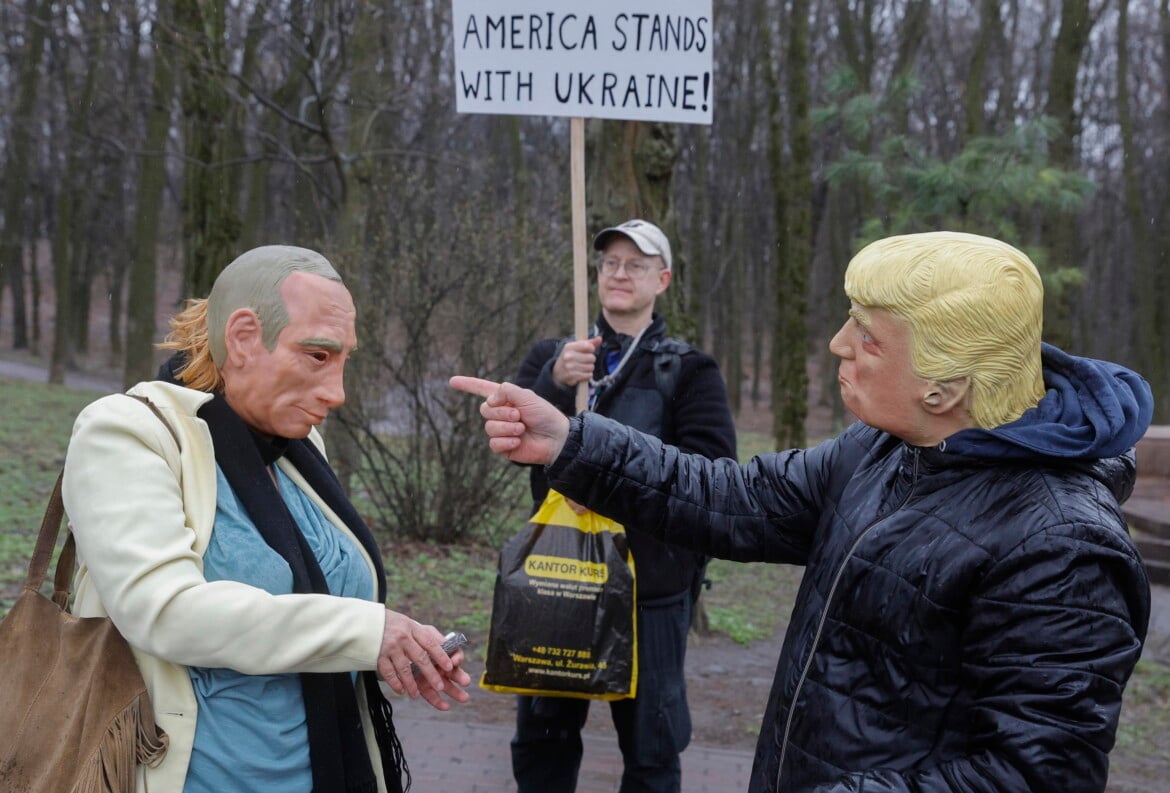Analysis
No peace but Trump celebrates anyway
Putin used ice hockey, of which he is a player and great fan, as a tool for unity, proposing the organization of international matches between the teams of the Russian Federation and the North American NHL – an example of sports diplomacy, modeled after the table tennis matches with China in the 1970s.

The long-awaited phone call between Donald Trump and Vladimir Putin marked a first win for Russia. The Kremlin announced an immediate halt to attacks on Ukrainian civilian and energy infrastructure for the next 30 days as the first step on a path that should lead to a ceasefire in the Black Sea as well and, in the meantime, to working out a plan for a full ceasefire. However, shortly after the talks ended, Kyiv was hit by a Russian drone attack and several explosions resounded in the skies over the capital.
The two presidents expressed their fundamental agreement and mutual appreciation, and their respective secretariats spoke of a “very positive meeting” which heralded excellent future prospects. Putin used ice hockey, of which he is a player and great fan, as a tool for unity, proposing the organization of international matches between the teams of the Russian Federation and the North American NHL – an example of sports diplomacy, modeled after the table tennis matches with China in the 1970s. Of course, they talked about business, investments, rare earths and hydrocarbons, but the issue around which the long conversation between the two leaders turned – three hours long, according to the Kremlin spokesman – was the path to “a definitive peace.”
It is striking that there is no mention at all in the White House’s notes of the Jeddah plan agreed by Ukraine – or, rather, that Kyiv had been forced to agree on. Neither Trump nor Putin mentioned the “30-day full ceasefire” that everyone expected to be discussed on the call.
Instead, the agreement on a ceasefire for airstrikes alone, and only regarding civilian and energy infrastructure (belied, furthermore, by the almost immediate attack on the Ukrainian capital afterwards) was presented as a success of diplomacy and a sign of Russia's willingness to reach an end to the conflict. It is worth pointing out that Zelensky's proposal prior to the meeting between his emissaries and the U.S. delegation in Saudi Arabia was precisely that of a ceasefire in the air, at sea, and a large-scale and continuous exchange of prisoners. But Secretary of State Marco Rubio and National Security Adviser Mike Waltz had come with a very specific mission: to force the Ukrainians to take a concrete step toward a truce. The latter knew they couldn’t oppose it; the imperative was to patch things up with the White House after the catastrophic press conference in Washington. After all, Trump admitted this on March 18 during an interview: “We had to get Ukraine to do the right thing ... You saw just a glimpse in the Oval Office.”
However, when a limited ceasefire with progressive stages was proposed by Ukraine, the U.S. imposed a much more ambitious plan; but now that Putin has agreed to a much narrower one, the Americans are overjoyed. It’s understandable from a logical point of view: many have wondered why Moscow would agree to a ceasefire now that its troops have almost entirely recaptured Kursk and the situation on the eastern front continues to hang by a thread for the defenders. The Russian generals will use these 30 days (assuming nothing changes in the meantime) to wrest the last patches of occupied Russian territory from Kyiv’s control and push further into Donetsk, possibly launching a new offensive toward Pokrovsk. Putin also informed Trump that a prisoner of war exchange with Ukraine, 175 on each side, would be held on March 19 as a first step toward starting a program of continuous prisoner exchange.
For Zelensky, whose greatest fear is Russia and the U.S. going off completely on their own, the outcome of Tuesday’s phone call was not quite a catastrophe, but something like half of one. Washington and Moscow acting lovey-dovey towards one another is an enormous danger for Kyiv, while the war on the ground is not going well and it is unrealistic to expect the situation to improve for the defenders. However – and this is what makes the final assessment less negative than it would appear – at this point there has been no significant shift beyond a series of declarations about intentions, and there is always the risk (which Zelensky is surely hoping for) that over the next month, Putin will irk Trump in some way and the tables will turn. After the call between the two, with a Russian drone attack in progress, Zelensky commented that “right now, in many regions, you can literally hear what Russia truly needs”; at the same time, a ceasefire on attacks against infrastructure would be “a positive result.” He has also stressed that “Europe must be at the negotiating table, and everything that concerns European security must be decided together with Europe.”
Trump and Putin also talked about the Middle East, and they “shared the view that Iran should never be in a position to destroy Israel,” referring to Tehran's nuclear program, which Washington wants to stop and for which it has asked the Kremlin for assistance in recent weeks.
Originally published at https://ilmanifesto.it/niente-tregua-ma-trump-esulta on 2025-03-19
